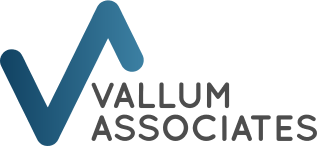
How Can I Get a Job in Europe?
You can get a job in Europe by choosing the right country for your skills, checking visa requirements, tailoring your CV to local standards, and preparing for European interview styles. Thousands of professionals make the move every year, especially into high-demand sectors like tech, energy, and finance, and with the right approach, you can too.
Why should I work in Europe?
For many international professionals, working in Europe is about so much more than a career move, it’s a lifestyle upgrade. You’ll find competitive salaries, strong benefits, and access to world-leading companies. But beyond the career perks, there’s the ability to travel freely across 27+ countries, experience diverse culture, and achieve a work-life balance that’s hard to match.
It’s no surprise so many people are asking: How can I get a job in Europe?
Which European countries are best for my career?
It goes without saying that not all European countries are the same when it comes to opportunity. Each has its own industries, skill shortages, and career perks.
Germany: Huge demand for engineers and IT specialists
Netherlands: Booming in life sciences, fintech, and logistics
Ireland: Home to global tech and pharmaceutical hubs
Spain & Italy: Growing demand for digital skills and renewables
UK: Strong markets in finance, renewables & professional services
What should I consider before choosing a country?
Salary vs cost of living: Big cities pay more but can also be expensive to live
Language: Many companies will operate in English, but local language skills are very important.
Expat communities: Some countries have thriving expat networks that make integration easier.
Do I need visa sponsorship to work in Europe?
Not always.
If you’re an EU/EAA citizen, you can usually live and work freely in other EU countries
If you’re outside the EU, you’ll almost always need a work visa.
What is the EU Blue Card?
The Blue Card is designed for highly skilled professionals in shortage roles like IT, engineering, and healthcare. It makes it easier to live and work in participating EU countries.
Which employers sponsor visas?
You’re most likely to find sponsorship with:
Large global corporates (especially in tech, finance, renewables, and engineering)
High-growth firms in competitive sectors
Mid-sized companies in shortage industries
Tip from recruiters: Don’t waste time applying blindly. Employers who sponsor usually make it clear on their careers pages, they want you to know.
How can I tailor my CV for European employers?
Your CV will need to reflect European standards:
Keep it short (1-2 pages)
Highlight achievements and measurable results
Use UK English spelling for the UK/Ireland
Most of the time, you will need a cover letter, it’s your chance to show motivation for the role and country.
What are European interview styles like?
European interviews aren’t all the same:
Germany and Netherlands: Direct, structured, detail heavy
Spain and Italy: Conversational but still professional and rigorous
Etiquette is simple: be punctual, be prepared, and stay professional. Enthusiasm is always welcome.
What are the practicalities of working in Europe?
How long does the process take?
From application to relocation, expect anywhere from 2-6 months, depending on notice periods, visa processing times, and employer support.
Who usually pays for relocation and visa costs?
Large corporations often contribute or cover the costs
Smaller companies may expect you to manage some or all expenses yourself.
But it also depends on your skills and the demand for those skills in the country you want to work in.
Do I need to speak the local language?
Many jobs (especially in international firms) are English-speaking.
But learning the local language will improve both your chances of being hired and your everyday life.
What if my role doesn’t fit into a shortage list?
That’s where a recruiter helps. At Vallum, we can advise whether your skills are in demand and where in Europe they’re most valued.
Should I use a recruiter to find a job in Europe?
Job hunting abroad is harder on your own. Between sponsorship rules, relocation logistics, and cultural differences, it’s easy to waste months figuring it out.
A recruiter with international expertise can save you time, connect you to the right employer, and make sure nothing falls through the cracks.
Is now the right time to expand my career into Europe?
Europe might feel out of reach, but thousands of professionals successfully make the move every year.
If you’re serious, start by asking yourself:
Where are my skills most in demand?
What kind of lifestyle am I looking for?
Am I ready to adapt to new cultures and ways of working?
With clear answers to these questions and a focused plan, you’ll be ready to take the next step.
At Vallum, we’ve helped professionals from across the globe transition into roles in Europe’s top industries. If you’d like to explore current opportunities, take a look at our job board.

